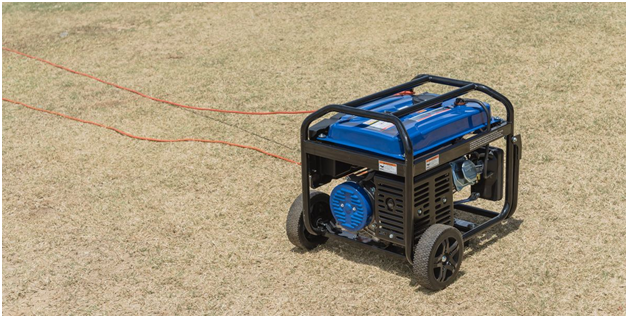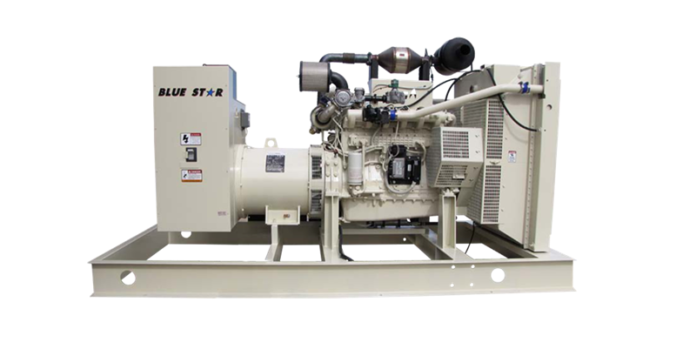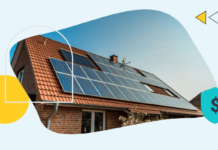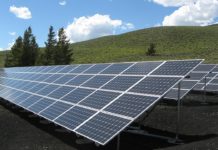Most of us take electricity for granted till a power outage occurs and reminds us that we really need it. It just makes you wonder, how did our ancestors spend their lives without it? And now, the frequency of power outs could increase because of today’s weather and infrastructure. But there isn’t any need for you to stay without electricity because of this. There are multiple types of generators you can get, so in this article we are going to talk about how you can pick the right one.
Generators for Different Houses
Depending on the area you live in and how much power you use there are many generators to pick from. In the following paragraphs, we’ll list some different situations you may be in, and what generators will be best for them.
Homes with Occasional Outages
If your home is in a place with dependable power, and without any hurricanes or other natural disasters that interrupt the power supply, portable generators are the best. They are perfect for homes which experience only short and few outages each year.
Every portable generator for homes use requires manual operation be it connected directly to your appliances with a cord or connected to the circuit with the help of a transfer switch. You can choose one of these, but if you pick the second option, you’ll have to get a professional to install the switch. Click here to learn about manual transfer switches.
You’ll also have to decide what source of fuel you want to use. Gasoline, propane, and diesel are the common types of fuel, but there are also solar, tri-fuel, and dual-fuel options. The other alternative can be very useful in a situation where there is a shortage of gas. Alsoremember never to run generatorsless than ten feet away from any windows or indoors because of the dangerous carbon monoxide they produce.
Generator for a Mobile Home
If you live in a mobile home, with short outages, it would be best to get a portable generator. As you’re shopping for one, remember that some parks for mobile homes have certain noise restrictions. Using this information, look for generators with a low decibel rating. An inverter generator is perfect for meeting any noise requirements. If you’re a mobile home owner who lives in an area with frequent outages, you can get a standby generator installed. But check with your home park before doing this.
Homes with Frequent Power Outs
If natural disasters are regular things in your area, think about getting a whole house or standby generator installed. Portable generators weren’t designed to run for weeks which could be the length of time you’ll have to wait to get the power restored after a storm. Check prime power generator for sale if you want to buy one or you could look for a place to rent old and new generators.
Portable Generators Measured By Wattage
Down below this paragraph are the estimates of the things this type of generator can power by their wattage. The length of time each generator will run depends on a number of factors. Before using a generator, read the manual to know what you can run with it, and how long to leave it running.
Small Portable

This gives between 1,000 to 3000 watts. It is perfect for a short power out when you just need it for a couple of hours. They can power essential like the lights, refrigerator, or microwave. Just remember that the fewer the appliances you power, the longer the generator will stay.
Medium Portable
These generators provide from 3,000 to 6000 watts. They’re still supposed to be used for the essentials, but they have larger tanks, meaning that you could turn more things on for a longer length of time. With these generators, you can be cooking your food in a microwave with your fridge and other applianceson. The benefit of the small and the medium generators is that they can be transported easily for activities. But the bigger generators can’t be moved so easily.
Large Portable
This one provides anywhere from 6,000 to 9000 watts. It can power more than two rooms as long as you use it with a transfer switch and not a cord. It’s safer to use a transfer switch and not a cord. They can run with pretty much all appliances on except for some equipment that require a high amount of watts.
XL Portable
As the largest portable option, it provides up to 10,000 or more watts. It’s used with a transfer switch and can power equipment such as well pumps, security system, etcetera. If you experience a lot of outages in the area you live in, you might want to think about standby generators.
Inverter Generator
If you are going to be powering electronic devices likea high tech refrigerator, and phone chargers, generators that have a THD (or total harmonic distortion) of four percent or less will be needed. THD simply refers to level of “cleanness” the electricity has.
If you get a generator with a high level of THD, your electronics could get fried. If it is important for you to power any sensitive equipment, the solution to this is getting a standby generator or an inverter which will produce clean power. Click https://generatoradvisor.com/what-size-generator-do-i-need/ if you don’t know what portable generator size you need.
Conclusion
You can now see that you have a solution to power outs no matter whereyou live. Since you know how to get a generator to use in your home, you can keep on taking electricity for granted provided you have your plan B in place.








